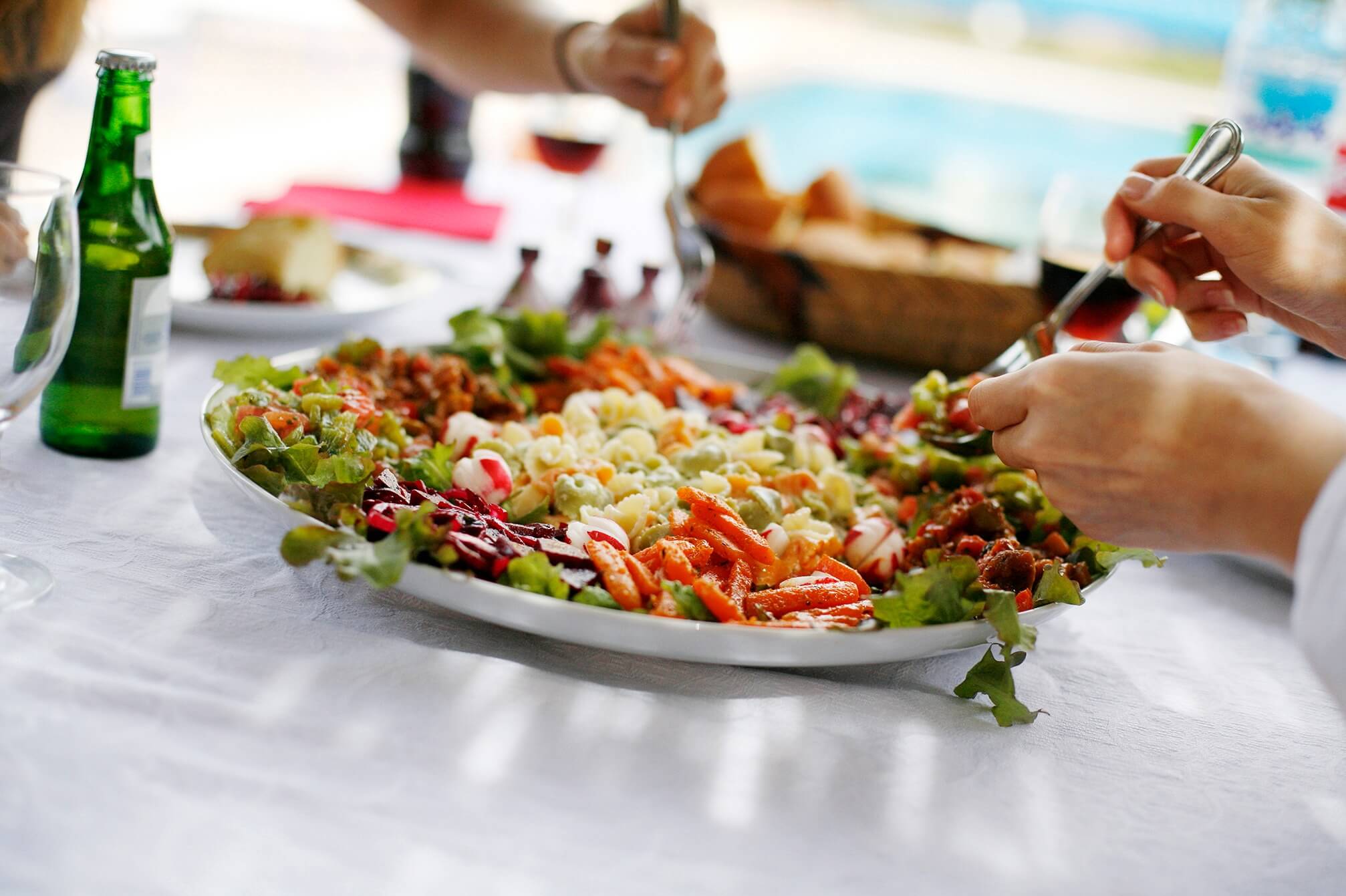Dear Kosher Consumer
Welcome to the Kashrut Authority guide to Pesach 5782. The purpose of this guide is to provide you with everything you need to know to enable you to enjoy and observe Pesach in full.
For the seven days of Pesach (eight days in the diaspora), the Torah forbids Jewish people to consume or even possess Chametz. Chametz that one is not permitted to eat is any food that is made up of or contains any of the five grains - wheat, barley, spelt, oats and rye - that has been mixed with water and has been allowed to stand longer than 18 minutes. Foods included in this prohibition range from bread to any beverage distilled from these grains and includes mixtures that have the smallest amount of Chametz including media used in the laboratory in growing cultures and even pet food.
The first part of our directory deals with food items and other products which do not contain Chametz and may be used on Pesach.
The second part is a guide to preparing the kitchen for Pesach.
The third part outlines the mitzvah of disposing of Chametz from one’s home.
The final part explains how the mitzvot of the Seder should be performed.
For the purpose of clarity, we have redesigned our Kosher for Pesach products directory into five specific sections.
SECTION 1:
CERTIFIED KOSHER FOR PESACH
These are products that have been investigated and formally supervised especially for Pesach. They represent the highest standard of Kashrut as applicable to kosher for Pesach. Other than raw foods some people purchase only these products for Pesach. Because the Code of Jewish Law encourages people to be especially strict on Pesach some people have a custom to use only kosher for pesach certified items for Pesach
Only items with a “Kosher for Pesach” sign which also bears the name or symbol of the supervising authority printed on the package or tin should be used as proof of acceptability for Pesach. It is the customer’s responsibility to ensure that all articles purchased are indeed properly endorsed by a reliable authority and are Kosher for Pesach. One should not rely on the shopkeepers, however well-intentioned they may be. Similarly Pesach sections in Supermarkets such as Coles, Woolworths, Harris Farm or IGA etc may have Chametz items inadvertantly placed in them. “Buyers should always Beware”
SECTION 2:
KOSHER FOR PESACH – NOT CERTIFIED
These are products that while not being formally certified for Pesach have been determined to be of a standard that is appropriate for the fully observant kosher consumer even in the first instance. They are products that are inherently kosher for Pesach or the possibility of contamination with Chametz is considered insignificant.
SECTION 3:
CHAMETZ FREE
These are products that have been investigated and found to be free of Chametz, but are not certified as such and are not up to a standard generally practiced by international kashrut agencies. These products are listed for use by persons who may not have access to certified kosher for Pesach products or are not yet ready to take upon themselves the stricter approach.
SECTION 4:
DETERGENTS AND OTHER INEDIBLES
These are products that are either inedible or not for human consumption such as detergents or plastic plates. These are products that because of their very nature do not necessarily pose a kosher for pesach problem and do not need formal kosher certification.
SECTION 5:
MEDICINES AND BABY FOODS
These are products that are of course fit for human consumption but because they are for infants or people who are unwell attract their own legitimate leniencies.
Each of these sections will be clearly delineated in this year’s directory.
Ashkenazim do not eat Kitniyot during Pesach due to its similarity to Chametz. This includes rice, corn, legumes - beans, peas and (according to our custom) peanuts. Ashkenazim must therefore carefully read all food labels even with supervised products to ensure that the product does not contain Kitniyot and are not kosher certified just for sephardim. This is a common practice for products imported from Israel
The Kashrut Authority has dedicated several pages of Kitniyot products for the benefit of the Sephardi community. We have worked together with the “Badatz Bet Yosef” in Israel and there are kitniyot products manufactured in Australia under our supervision that are now sold in Israel for Sephardim with the stamp of the badatz bet Yosef.
This booklet is the hard work of all of us at the KA. We are confident as to the accuracy of the information contained therein, however please check our website as we get closer to Pesach in case there are changes or alerts that are as a result of information that has come to hand after publication.
If there are any items not covered in our booklet, or if there are specific questions you need answered please do not hesitate to “join the conversation” on our facebook page, or email our dedicated Pesach email address kapesach18@gmail.com . Please feel free also to whatsapp my dedicated pesach number +61411657372.
We also take this opportunity to thank both local and overseas Kashrut agencies that have shared with us information in relation to Pesach and year round matters, and in particular the OU, OK and CRC and locally our esteemed colleagues at Kosher Australia .
Most importantly we thank you our loyal kosher consumers. You are ultimately the driving force behind the formidable strength of kosher demand in our community. The more you purchase local kosher items, the more the marketplace knows of kosher consumers - the more products will become available and the more companies will want their products to be kosher.
All of us at the KA take this opportunity to wish all of you a:
Happy and Kosher Pesach
“This Year in Exile next year in Jerusalem with the Temple rebuilt”
Chag Sameach
Rabbi Moshe D Gutnick
Rabbinic Administrator
